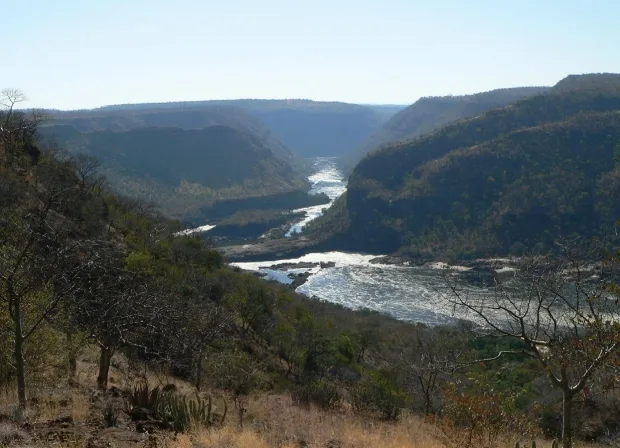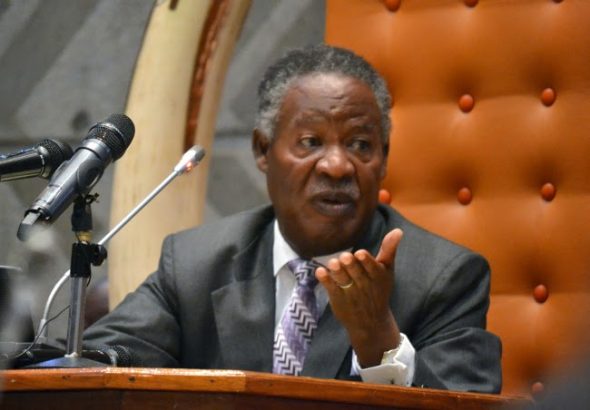
The Spectacular Batoka Gorge. Source: The Lowdown magazine.
◾Zambia cancels a building contract for a 2,400-megawatt power station on the Zambezi River due to high costs and failure to follow proper procurement procedures.
◾Zambia’s Energy Minister suggests exploring a hybrid solution combining solar and hydropower, indicating a potential reduction in capacity to around 1,000 megawatts.
◾General Electric and PowerChina remain silent as Zambia seeks to re-advertise the project and address setbacks caused by the Covid-19 pandemic and financing challenges.
By Chinedu Okafor | BIA
Lusaka, June 17 – Zambia has disclosed that it will cancel a building contract given to General Electric Co. and Power Building Corp. of China because the project to build a 2,400-megawatt power station on the Zambezi River is too expensive.
In remarks aired late Tuesday on the state-run Zambia National Broadcasting Corp., and reported by the American news agency, Bloomberg, Zambia’s Energy Minister, Hon. Eng. Peter Chibwe Kapala, noted that proper procurement procedures weren’t followed when the purchase was made.
The dam’s development is overseen by the state-run Zambezi River Authority, which predicted last year that the project would cost $5 billion.
“We are disengaging from that contract and we hope to re-advertise it and revisit everything that was agreed to before. Mainly, it was because of the cost, it was just too much,” said Kapala.
“The latest information is that the hydrology of Zambezi might not favour the establishment of a 2,400-megawatt hydro-plant,” the Energy Minister said.
“We could reach that if maybe we do a hybrid of solar and hydro itself, but the indications are that we could be looking at far much less than the 2,400, it could be maybe even 1,000 megawatts,” he added.
Also Read: ZESCO signs a 2.4GW PPA with CiEG of China.
General Electric declined to respond right away. And an email sent outside of regular business hours seeking comment did not immediately receive a response from PowerChina.
The 2,400-megawatt Batoka Gorge project was supposed to get going in 2020, however, there were a number of setbacks, including the Covid-19 pandemic and problems with obtaining finance.
General Electric and Power China were chosen to construct the facility jointly by Zambia and Zimbabwe. Both countries were experiencing an electricity shortfall as a result of poorly maintained plants and drought-related production reductions at existing hydroelectric facilities on the Zambezi River.
The Secretary for Energy and Power Development in Zimbabwe, Gloria Magombo, stated on Wednesday that she was not aware of the statements made by the Minister from Zambia and that the Ministry would reply later.
You can now follow Woodpecker’s Digest on Twitter and Facebook!
©2022 Woodpecker’s Digest Inc.
Putting news into perspective







